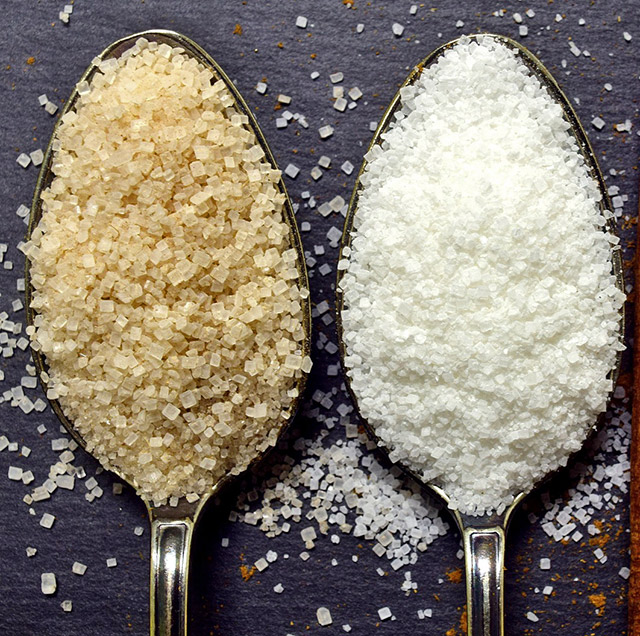For those who have had a close look at the common food label, you will notice that both carbohydrates and sugars are often listed. Sugar is a form of carbohydrate, so why are both listed? This is something that confuses many people.
The term ‘complex carbohydrate’ is an old one, it is still a relevant way of describing carbohydrate foods. It generally explains mainly the higher fiber content and better nutritional values of them. However, these days we generally put carbohydrates into the ‘Glycemic Index’ framework to describe its uptake and release into the blood stream.
To briefly explain the difference, some complex carbohydrates are released quickly into the blood stream, while others are released slowly. Also some simple carbohydrates (historically known as refined sugars) can be released slowly into our blood system. There is more general information about GI.
To explain the carbs and sugar sections of a food label; the total carbohydrate portion is all carbs in that food, complex and simple. The sugar portion includes only the simple sugars. Simple sugars also includes fruit sugar and milk sugar, which are healthy sugars.
For general health it is still ideal to stay away from cereals with have a high sugar value – as often it is just added sugar – however cereal with fruit in it will contain fructose (or lactose for milk), and therefore have a higher ‘sugar’ value as well.
The way to know how much of the ‘sugar’ value is from fruit or sugar is to check the ingredients list for these keys words. The one that is highest on the list will be contained in higher amounts in that food.
 raw sugar is pure sugar
raw sugar is pure sugarFor athletes, there is no simple recommendation. For general health it is best to steer clear of the very high sugar content products (as it is unlikely to be all fruit) and cereals, that generally don’t include other nutrients such as protein and vitamins – which are essential in the diet too. However, depending on your other nutrition goals as an athlete, you may need to incorporate more carbohydrates in your diet, of which sugar is not such a bad thing.
If you don’t get enough through your diet, and if you have a fairly heavy training/playing load, sugars can boost your carbohydrate intake. Also you would need to consider how nutritious the rest of your diet is.
Related Pages
- Carbohydrates for athletes
- GI foods for Athletes and some more general information about glycemic index food
- Carbo loading prior to exercise.
- Sweets for Recovery — Sweets are sometimes used for recovery during and after exercise


 Current Events
Current Events